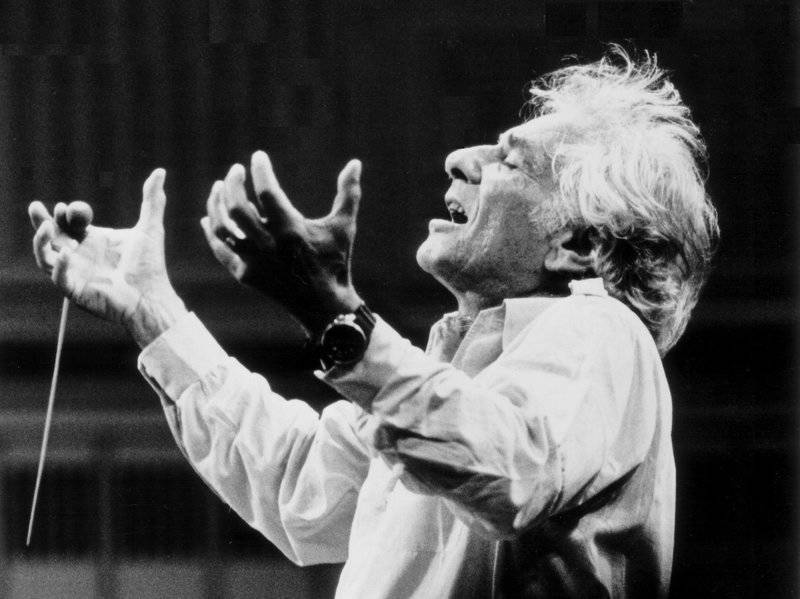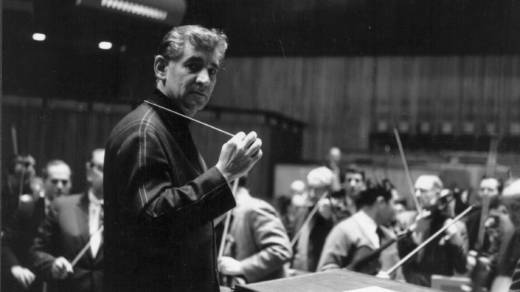Aug. 25, 2018 marks the centennial of Leonard Bernstein‘s birth. He was a singular American talent and one of the great orchestra conductors of his generation. He was also a composer of symphonies, ballets and hit musicals, a teacher, a television personality and a complicated man with a complicated personal life.
If there was one moment when Leonard Bernstein became Leonard Bernstein, at least to the general public, it was at a concert by the New York Philharmonic on Nov. 14, 1943 at Carnegie Hall in Manhattan. The conductor, Bruno Walter, called in sick. The 25-year-old Bernstein stepped in with only a few hours’ notice and without a single rehearsal.
“When my father climbed up on that podium in Carnegie Hall and conducted the New York Philharmonic on a national radio broadcast that Sunday afternoon, that was why it was front page news the next day. Like, ‘Local boy makes good,'” says Jamie Bernstein, the late conductor’s daughter.
In just the following year alone, Bernstein premiered his first symphony, Jeremiah, his first ballet, Fancy Free and his first Broadway musical, On the Town.

(Paul de Hueck/Courtesy of The Leonard Bernstein Office, Inc.)
Bernstein grew up outside of Boston, born to Russian immigrant parents. His father, Sam, had every expectation that his son would follow him into the hair and beauty products business, to the point that he wouldn’t pay for young Leonard’s piano lessons. Nevertheless, Bernstein studied at Harvard and the Curtis Institute of Music, and spent summers at Tanglewood, the Boston Symphony Orchestra‘s seasonal home in the Berkshires. It was there that Bernstein came under the influence of conductor Serge Koussevitzky and composer Aaron Copland. The two of them had grand plans for their protégé, says Nigel Simeone, who edited a volume of Bernstein’s letters.

9(MDAxOTAwOTE4MDEyMTkxMDAzNjczZDljZA004))

